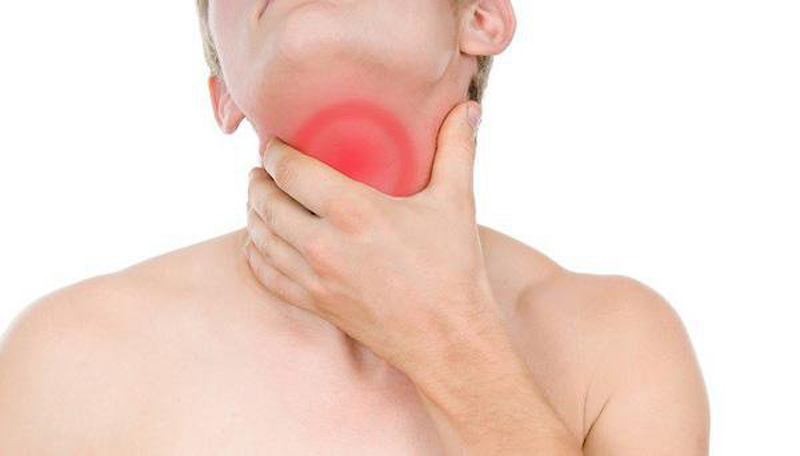
Understanding Esophagitis: Causes, Symptoms, Treatment, and Prevention
Types of Esophagitis
Reflux Esophagitis
Reflux esophagitis, often linked to gastroesophageal reflux disease (GERD), occurs when stomach acid flows back into the esophagus. The prolonged exposure to stomach acid can irritate and inflame the esophageal lining, leading to reflux esophagitis.Infectious Esophagitis
Infectious esophagitis is caused by various pathogens, such as bacteria, viruses, and fungi. Candida and herpes are common culprits behind this type of esophagitis. People with weakened immune systems are particularly vulnerable to infectious esophagitis.Eosinophilic Esophagitis
Eosinophilic esophagitis is characterized by elevated levels of eosinophils, a type of white blood cell, in the esophageal tissue. Allergic reactions to certain foods or environmental factors often trigger this condition, causing inflammation and possible narrowing of the esophagus.Common Causes of Esophagitis
Gastroesophageal Reflux Disease (GERD)
GERD is a prevalent cause of esophagitis. When the lower esophageal sphincter weakens or relaxes inappropriately, stomach acid can flow back into the esophagus, causing irritation and inflammation over time.Infections: Candida, Herpes, and More
Infections caused by pathogens like Candida (yeast) and herpes simplex virus can result in esophagitis, especially in individuals with compromised immune systems.Allergic Reactions
Certain allergic reactions, often triggered by specific foods or environmental factors, can lead to eosinophilic esophagitis. This allergic response causes inflammation and can make swallowing difficult.Recognizing the Symptoms
Heartburn and Chest Pain
Heartburn, characterized by a burning sensation in the chest, is a classic symptom of esophagitis. The pain may intensify when lying down or after consuming acidic or spicy foods.Difficulty Swallowing (Dysphagia)
Dysphagia, or difficulty swallowing, can indicate esophageal inflammation. It may feel like food is getting stuck or not going down smoothly.Acid Regurgitation
The regurgitation of stomach acid into the throat and mouth can cause an unpleasant sour taste. It often occurs after meals or when bending over.Nausea and Vomiting
Esophagitis can lead to feelings of nausea and, in some cases, vomiting. This can be triggered by the irritation and inflammation in the esophagus.Diagnosis and Medical Evaluation
Endoscopy
Endoscopy involves the use of a flexible tube with a camera to visualize the esophagus. This procedure allows doctors to assess the extent of inflammation and identify any abnormalities.Biopsy
During an endoscopy, a biopsy may be taken to examine esophageal tissue under a microscope. This helps determine the underlying cause of esophagitis, such as infection or eosinophilic inflammation.Imaging Tests: X-rays and CT Scans
Imaging tests provide detailed images of the esophagus, allowing healthcare professionals to identify structural issues or abnormalities that could be contributing to esophagitis.Effective Treatment Approaches
Lifestyle Modifications
Lifestyle changes, such as avoiding trigger foods, eating smaller meals, and maintaining a healthy weight, can significantly reduce symptoms of esophagitis.Medications
Proton pump inhibitors (PPIs) and H2 blockers are commonly prescribed to decrease stomach acid production, providing relief from acid-related symptoms.Dietary Changes
Adopting a diet that minimizes acid reflux triggers can alleviate symptoms. This includes reducing consumption of caffeine, spicy foods, citrus, and fatty foods.Surgical Interventions
In severe cases, surgical procedures like fundoplication can be considered to strengthen the lower esophageal sphincter and prevent acid reflux.Prevention Strategies
Maintain a Healthy Diet
Eating a balanced diet that includes fiber-rich foods and limiting acidic or fatty foods can help prevent esophagitis.Manage GERD Effectively
If you have GERD, work with your healthcare provider to manage your condition and prevent episodes of reflux, which can exacerbate esophagitis.Practice Good Hygiene
For those with weakened immune systems, practicing good hygiene and avoiding contact with individuals who are sick can reduce the risk of infectious esophagitis.Cardio Workouts for a Healthy Heart: Improve Your Fitness
Living with Esophagitis
Coping with Symptoms
Managing esophagitis involves addressing symptoms through lifestyle changes, medications, and possibly surgery. Regular communication with healthcare providers is crucial for effective symptom management.Emotional Support
Dealing with a chronic condition like esophagitis can be emotionally challenging. Seek support from friends, family, or support groups to navigate the emotional aspects of living with this condition.Conclusion
Esophagitis is a complex condition that can significantly impact one’s quality of life. By understanding its causes, symptoms, treatment options, and prevention strategies, individuals can take proactive steps to manage and alleviate the discomfort associated with esophagitis.Understanding Gastroesophageal Reflux Disease Symptoms
Can Nurturing Mental Wellness Help in the Prevention of Esophagitis?
Can naturally cultivating mental well-being help in the prevention of esophagitis? Research suggests that there may be a connection between mental wellness and physical health. Stress and anxiety can weaken the immune system, making individuals more prone to developing conditions like esophagitis. By prioritizing mental well-being through techniques like meditation, exercise, and positive thinking, it’s possible to reduce stress and potentially lower the risk of esophagitis.









